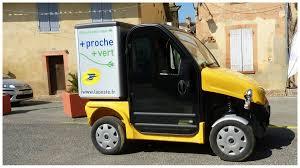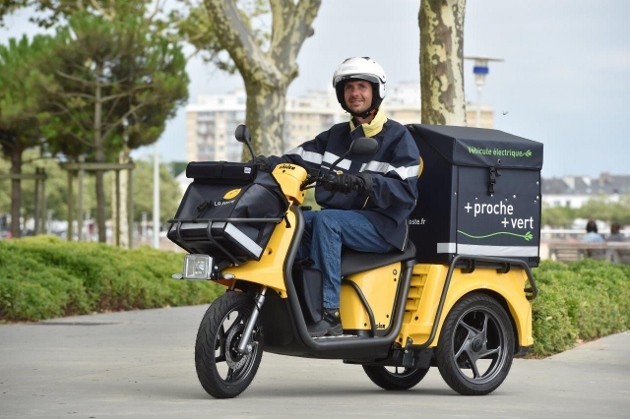I will definitely buy an electric car the next time, maybe in three or four years.
Although I enjoy my biturbo 400 hp sedan I think that these days will be over, or should be over, and I’d rather be a part of the future when I get older than become one of those bitter traditionalists who claim that “everything was better back then”, that’s a life perspective I don’t want. It was never true anyway, IMHO, it’s sentimentality.
My 3 cylinder 1 liter engined car is more economical than this “back then” car.

I have this 25-liter marine tank and battery operated pump.
It gives me another 500 km for my car or another hour of flight for my aircraft. It came in handy on a trip across Spain one Sunday. On landing for fuel at Badajoz (LEBZ) I was told that they had fuel but nobody to pump it. Fortunately I had this tank in the back, enough to reach my destination in Portugal (LPPM).
Electric plane or car, no way.
Simon
simon32 wrote:
I have this 25-liter marine tank and battery operated pump.
simon32 wrote:
Electric plane or car, no way
Hmmm 
The battery operated pump is designed for filling kerosene (paraffin) stoves and is not recommended for gasoline. I always use it outside, with optimal ventilation, mostly for filling lawn mowers.
In 1997, I hired an electric car in La Rochelle, one of the first towns to offer this service. I liked it as it was quiet and smooth in operation. However, they did forbid trips to the Ile de Ré, presumably not wishing to tow cars back from there with flat batteries. This gave me the first taste of range anxiety (rekkeviddeangst). Ten years use of an electric bicycle has reinforced this worry as it is not easy to ascertain the exact capacity of a battery. Also it is easy to forget to charge it overnight and then set off thinking you have full range only to stall furthest from home.
My car has an accurate fuel gauge with low fuel warning light and an onboard fuel computer. Running out of fuel requires considerable distraction.
The French Post Office claims to have the largest fleet of electric vehicles in the world. They have over 5000 Renault Kangoo vans, but they don’t come to our rural retreat as they are rated for a 50 km delivery circuit. The Post Office claims that the extra purchase cost over the diesel version is amortized in about six years.
Simon
simon32 wrote:
The Post Office claims that the extra purchase cost over the diesel version is amortized in about six years.
That must be a somewhat convoluted calculation given that the majority of the normal retail fuel price in France is tax paid to the Government.
In 1997??
That has little to do with todays technology.
Alexis wrote:
In 1997??
That has little to do with todays technology.
Silvaire wrote:
That must be a somewhat convoluted calculation given that the majority of the normal retail fuel price in France is tax paid to the Government.


simon32 wrote:
Range anxiety has not disappeared
That hasn’t the fear of death either, even though death is the only sure thing in life. I mean seriously. I routinely park my eUp at home when there is 2-3 km left. Today I can drive all over Norway with my eUp, even though it only has 160 km range. It’s not overly practical with such a short range, but perfectly doable, there are fast chargers everywhere. With a more practical range, 300+ km, the problem is mostly gone.
What is happening today is that there are more and more electric cars. In june this year, the car sales was a all time high. All time high for cars in total, and all time high for electric cars. 27% of the new cars sold were electrical. The range of electric cars are increasing on average. People charge mostly at home, so today there are more fast charges than the demand. Operators have started to talk about decommissioning some of them.
As I have said earlier, you cannot understand electric cars by looking at, and comparing to gasoline/diesel fueled cars. The dynamics of how they are operated is just too different from what you are used to. You only end up in nonsense. Hybrid cars, forget them. The only reason to make a hybrid car is to get more HP than what you can with reasonable means using a gasoline engine. It’s essentially just a beefed up gasoline fueled car, only ridiculously complex. Lots of people in Norway purchase hybrid cars also, they think they will get the best of two worlds. They won’t. They will get the best gasoline car money can buy, but a piss poor electric car. The only exception is probably the BMW i3 hybrid, which essentially is an electric car free of “range anxiety”. But the second generation of all electric i3 already has reasonable range.
With electric aircraft, the “i3 method” is perhaps the only thing that practically will work because of the power demand and endurance. I don’t know, but for it to make sense, the gasoline/kerosene engine has to be very compact and light. This means a two stroke for smaller aircraft and a gas turbine for larger aircraft. This will not by any means be an electric aircraft. It will be an aircraft with all electric drive train, and a smallish battery tucked away somewhere for peak load only.
For all electric aircraft, I think this will attract a whole bunch of people who don’t find the current GA situation very attractive. Take this site for instance. Seemingly full of people travelling IFR for long distances, using the current previous ages aircraft fleet in the way they were designed to operate. The reality is, those pilots can almost be counted on one hand. Private GA is a niche on it’s own, more of a peculiarity in the grand scheme of things, and active IFR touring pilots count for only 5% of those, at the most. And that is without counting all the microlight pilots. No one in their right mind would target the current PPL pilots with an electric aircraft, and certainly not the tiny IFR touring “crowd” (someone probably is stupid enough to do it, but that is beside the point, microlight and experimental excepted). They would target the “other” ones. They would target the untapped rest of the human race, who can live well with 1-2 hour endurance or less, but see the benefits in short distance, fast and trouble free transport for whatever reason, business or pleasure. I also really don’t believe anything much will happen before aerial transport becomes pilot-less (experimental and microlight excepted). All electric propulsion is for many reasons needed for pilot-less aircraft to see the day IMO.
There are (or have been) other electric cars which are wholly electric but have a petrol or diesel engine which just charges the battery. Vauxhall / GM used to make one called Volta or some such; I remember being driven in one. Then you get the best of all worlds – except for carrying the weight of the engine. Actually this was at one point a hoped-for market for small gas turbines; they would run at optimum efficiency and only when needed.
But this is not relevant to aviation because the extra weight is pointless; if you need the engine to be big enough to generate enough electricity for enroute flight, you may as well use it to drive the propeller and forget all the electrical stuff… and this is true at every weight category. Actually it will be most critical in the 450kg category where you are so desperately limited by the MTOW minus the empty weight that the great energy efficiency of liquid fuel is not likely to be even remotely approached for the foreseeable future.